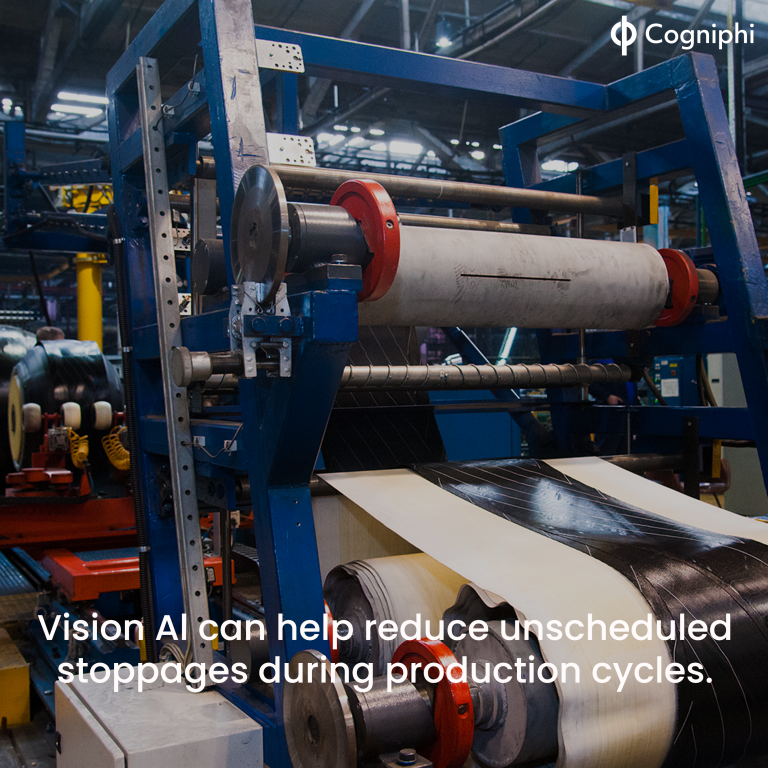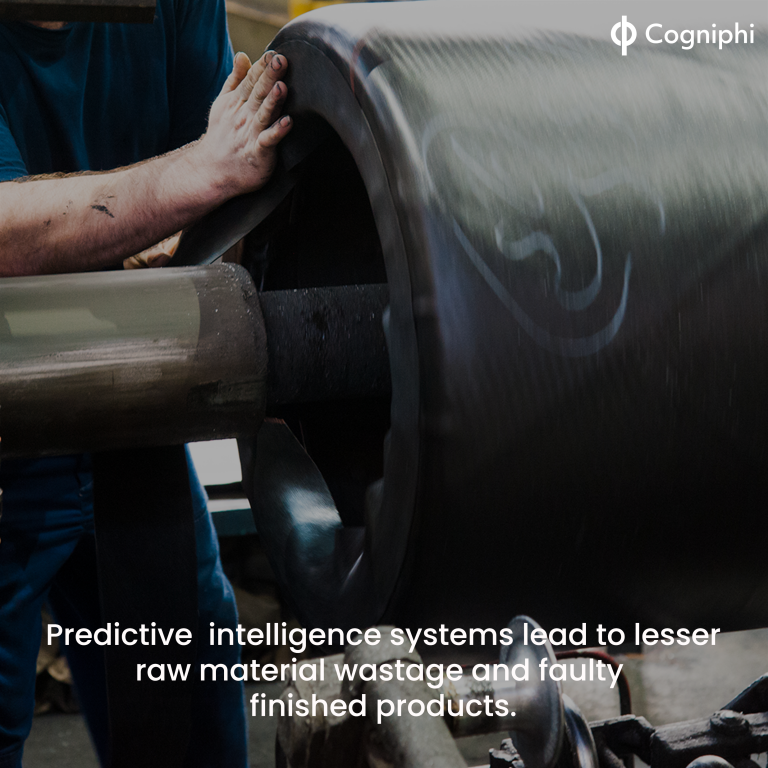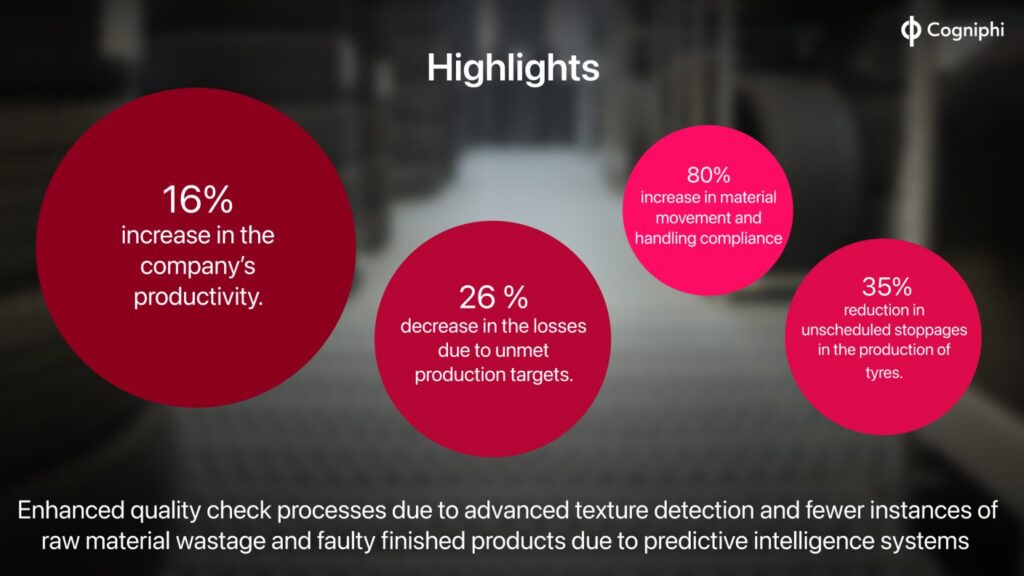Client Background
The client is a leading automobile parts manufacturer. The company has an almost eight-decade-long legacy in the industry and apart from tyres, the company deals in in various other rubber-based products such as treads, tubes, conveyor belts, and toys. The client approached Cogniphi for solutions to address challenges related to production loss, inventory management, and material wastage that were impacting their throughput and efficiency across the factory floor.
Our team of AI experts travelled to the company’s plant to understand the exact nature of these issues that they were facing and to design a framework of AIVI-based solutions. After a careful assessment of the underlying issues and requirements, we designed and implemented a vision-intelligence-based solution framework to help the client overcome the challenges they were facing on the factory floor.
Challenges and Solutions
Production Shortfall
It is crucial that daily production output targets are met in a factory setup. The client was facing recurring shortfalls and daily production targets were not being met. The first step was to identify the cause of the problem; Cogniphi’s team used the factory’s existing CCTV camera network and enabled it with AI-powered vision intelligence (AIVI). What followed was a real-time analysis of the video output and identification of key problem areas. Unscheduled machine stoppage was eventually identified to be the chief cause of daily target shortfall.
- Machine downtime: This can happen due to a host of reasons ranging from improper insertion/alignment of raw material to human error. In most instances, floor supervisors and factory personnel are alerted to machine stoppages several minutes after the problem has occurred and this leads to loss of precious production time.
- However, with Cogniphi’s Vision Intelligence blended with the client’s internal system, machine stoppages could be detected preemptively and real-time alerts would ensure that frequency and durations of machine stoppages reduced by nearly 35%.

Process Optimization
A factory floor is labyrinth space with multiple production zones all replete with machines and equipment. Tracking raw material movement from storage to usage can thus be a challenging task but essential task.
- Smart Tagging: For our client, misplaced raw material or incorrect storing of rubber rolls and other such raw material components was a challenge. For this, our team devised a Smart Tagging solution whereby raw materials were tagged with smart chips that could help with object tracking and object detection in real-time. These tagged components when loaded onto a machine that would lead to a flashing of green (for correct) or red (for error) light on large screens hanging above conveyor belts. This way, factory workers — who are often unskilled seasonal labourers — could understand if they have loaded the right material onto a machine and give them a chance to rectify their own mistake without having to involve a supervisor.
Value delivered by Cogniphi
- 16% increase in the company’s productivity.
- 26 % decrease in the losses due to unmet production targets.
- 35% reduction in unscheduled stoppages in the production of tyres.
- 80% increase in material movement and handling compliance
- Enhanced quality check processes due to advanced texture detection and fewer instances of raw material wastage and faulty finished products due to predictive intelligence systems
Highlights
- Integration of 1100 Active Sensors & 500 legacy cameras for detecting/predicting instances that can cause productivity loss, wastage, inappropriate handling of inventory, missed inventory, NCM movement, and operator availability.
- Vision data, inferences, prediction, productivity and live view were presented to the plant team supervisor in a simple and effective dashboard.
- 500 cameras processing roughly 30 GB of data per second used to create a functioning setup.
- Server setup within the factory premises, leading to all data being processed locally and company information staying protected through internal firewalls.
- >99% accuracy achieved for visual detection models.
- Real-time and non-intrusive solutions designed for all problems encountered during the manufacturing process.
- Custom data generation through Vision AI Engines reduced the need for training data.
- Company’s existing processes were built upon and fortified, instead of complete overhaul.

